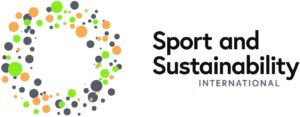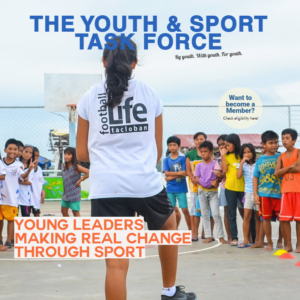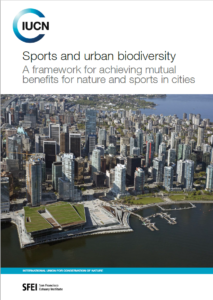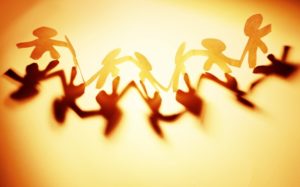
UNESCO is launching a dynamic, data-driven, multi-stakeholder Sport-Education Partnership (SEP) framework.
SEP will unite public and private stakeholders behind an integrated vision of development which harnesses the combined power of sport and education eco-systems to progress the United Nation’s Sustainable Development Agenda (3, 4, 5, 17).
The Sport-Education Partnership framework is impact-oriented and aims at creating transformative behaviourial- and systems-based change, starting with schools.
The first step for this was taken with the creation of UNESCO’s Quality Physical Education (QPE) Policy Package, which practically supports governments develop inclusive child-centered physical education policy.





GoGirls! Floorball is the IFF project aimed at helping to increase and promote the participation of girls and women in floorball throughout the world.
he IFF aims to provide guidance on the different challenges faced by girls in obtaining access to participation in sport, and to help break down those barriers within the international floorball family.
The key factors for the project are :
- Getting girls to play
- Teaching girls to play
- Keeping girls playing
The IFF, in conjunction with several of our Member Associations, has produced materials that can be used by individuals, clubs, local organisations or National Associations to help develop their girl's floorball programmes. In this section you can find a more detailed description as well as links to material for anyone to access.



SandSI
A conversation on how the paradigm has shifted in the sport of sailing and beyond.
Join the SDG Sport Lab on Thursday 2 July and and Thursday 9 July to hear from former elite athletes how to connect with athletes and stakeholders and develop a plan to embed sustainability in your event?
Topics:
- Part 1: Showing leadership, defining your vision, setting goals and engaging stakeholders
- Part 2: Embedding sustainability in your event
Speakers:
- Alexandra Rickham, Double Paralympic saling medallist
- Damian Foxall, 2011 Volvo Ocean Race Winner & Sustainability Program Manager, 11th Hour Racing Team
- Link to register: : https://zoom.us/webinar/register/WN_RjkxcBxcRWmZddJHsjKPpg



In 2019, the World Association of Kickboxing (WAKO) supported a campaign to sensibilise it's community about cancer, jarzmikand to support the Wako athlete Paulina Jarzmik.
A communication plan has been setup, and a dedicated merchandising campaign has been developped as well.


Rio 2016 and Dow Using Technology and Collaboration to Deliver a Low-Carbon Legacy
Details
The Rio 2016 Olympic Games are making history by leaving a significant legacy of low-carbon technologies in Latin America, while set to balance 2 million tonnes of CO2 equivalents. This will be achieved through the emission reductions obtained in initiatives in Brazil and Latin America described in this report.



The carbon mitigation programs follow the principles outlined in Dow’s Climate
Solutions Framework, a framework purposely built for these partnerships by Dow scientists together with external carbon experts. The Climate Solutions Framework allows event owners and organizations, in collaboration with partners, to implement a structured yet flexible approach to quantify and mitigate carbon footprints while also
leaving a positive social and economic legacy. These mitigation projects go beyond the physical boundaries of the events or the organization’s direct control, extending climate action to a global playing field.
Through its carbon mitigation projects, Dow has already delivered to date 4.3 million tonnes of carbon dioxide equivalent (CO2e).1 By 2026, the reductions are projected to exceed 6 million tonnes of CO2e.
Within this report, we describe Dow’s efforts to build capacity, drive change and achieve the adoption of low-carbon technologies. We hope the lessons learned will provide actionable advice to organizations across sectors to help build effective collaborations and accelerate the introduction of more sustainable technologies
globally.



The United Nations Educational, Scientific and Cultural Organization is a specialised agency of the United Nations (UN) aimed at promoting world peace and security through international cooperation in education, the sciences, and culture.
UNESCO developed a series of initiatives and programmes dedicated to sport policies, physical education and physical activities. These includes
- The Kazan Action Plan (click here for additional information)
- The Sport Education Partnership (SEP) Framework (click here for more information)
- The Youth and Sport Task Force (Click here for more information)
The Youth and Sport Task Force is another initiative of the UNESCO. It represents creative, passionate and innovative young leaders across Asia and the Pacific who use sport as a tool for positive social change in their communities.
The youth are in control. They design their own programmes, determine their own priorities and collectively, decide on the strategic direction of the Task Force. UNESCO supports the Task Force by providing opportunities for the members to promote and enhance their work by connecting with each other and with regional and global opportunities for growth and capacity building.
All programmes represented by the Task Force are aligned with the United Nations Sustainable Development Goals.
We are cultivating a community of young change-makers who are already making a big impact, by youth, with youth, for youth.
Additional information available at https://www.youthandsport.org/






The Youth and Sport Task Force is an initiative of the UNESCO. It represents creative, passionate and innovative young leaders across Asia and the Pacific who use sport as a tool for positive social change in their communities.
The youth are in control. They design their own programmes, determine their own priorities and collectively, decide on the strategic direction of the Task Force. UNESCO supports the Task Force by providing opportunities for the members to promote and enhance their work by connecting with each other and with regional and global opportunities for growth and capacity building.
All programmes represented by the Task Force are aligned with the United Nations Sustainable Development Goals.
We are cultivating a community of young change-makers who are already making a big impact, by youth, with youth, for youth.
Additional information available at https://www.youthandsport.org/




IUCN – Sports and urban biodiversity
A framework for achieving mutual benefits for nature and sports in cities
This guide provides a set of principles to help sports federations, local organising committee, developpers, investors and local ahthorities to incorporate the needs of urgan natures and biodiversity into their planning process. From setting up ecological monitoring systems to improving the management of habitats, there is a rande of ways in which the sports industry can help urban nature flourish






GAISF joins forces with UNAOC for One Humanity campaign
GAISF and several International Sports Federations (IFs) have pledged their commitment to the United Nations Alliance of Civilizations’ (UNAOC) One Humanity campaign, which calls […]



